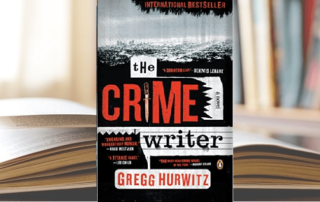THE WRITER’S CRAFT explores various principles, techniques, and guidelines to help authors of all genres improve writing and storytelling craft.
THE CRIME WRITER, by Gregg Hurwitz: A Riveting Novel and a Masterful Lesson in How to Write Mystery/Suspense
[by Ross Browne]
If there were ever a novel that writers and editors could take special pleasure in devouring like candy, The Crime Writer by Gregg Hurwitz is it. Putting aside the clever plot device that makes the book so naturally irresistible to novelists, The Crime Writer is a smartly written novel that stands […]






